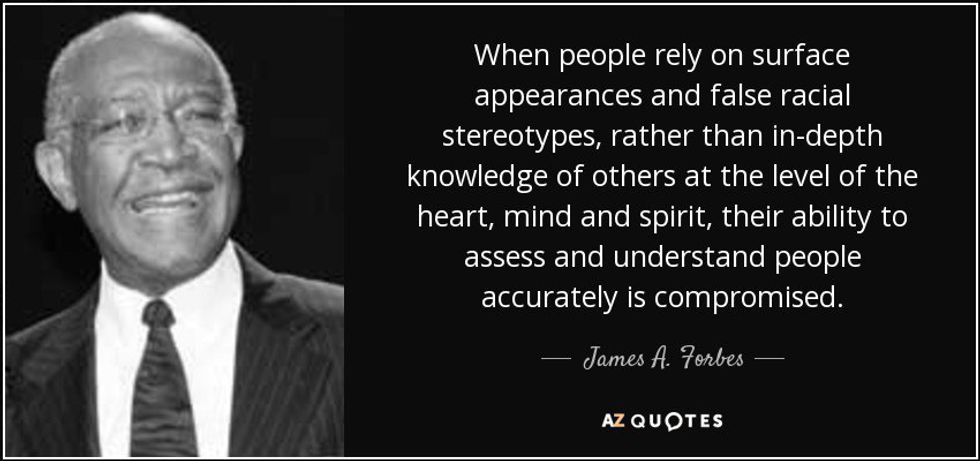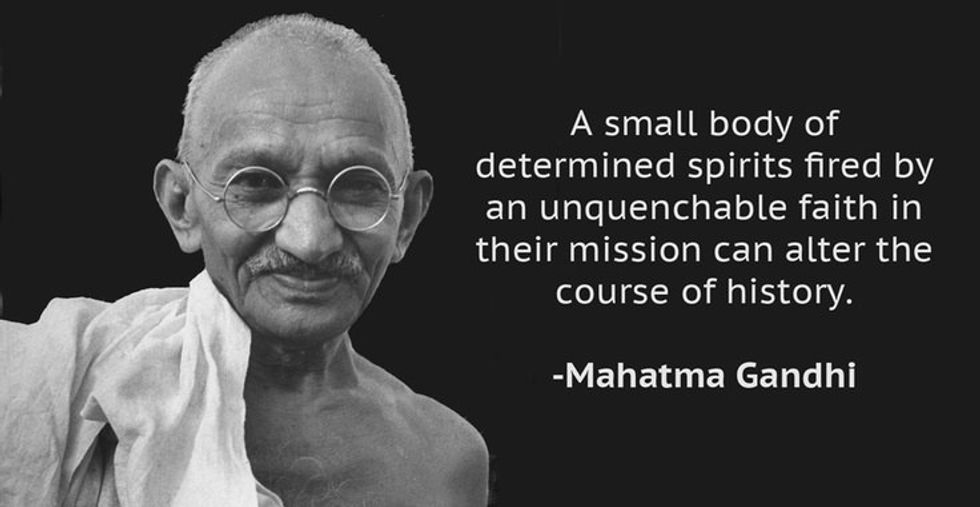Let's say you were in the middle of a job interview and all of a sudden the interviewer stops. He or she then says, "You know what? I don't think you're going to get the position because all insert race/gender/age/etc. are bad workers and that'll be bad for business, but have a nice day." Would you just say, "Thank you sir/ma'am," then leave? No? Then why is it that when our friends say something derogatory or make use of a racial, cultural, sexual or other stereotype we sometimes laugh or disregard it and turn a deaf ear? Whether we like it or not, we sometimes form hasty conclusions in our minds about people, both individuals and groups. When our hasty conclusions begin to affect our actions, the way we treat or perceive those people and potentially the rights of those people, it is at that point that we realize we have a problem. At this point, it's a little too late.
Recommended for you
We teach our children that stereotypes are "bad" and "wrong" and yet we sometimes do nothing to support those words. It is only when those stereotypes begin to seriously affect us or those that we love that we do something about it, and that should not be the case. My grandmother used to tell me, "If you see something and act blind, hear something and act deaf, then you are a part of the problem." If you see someone being treated unfairly due to a stereotype or some other preconceived idea, and it is within your power to help them and you do not, then only you know how you sleep at night because I don't. Stereotypes are perpetuated not only by the people who believe and allow them to color their judgment, but by the people who stand by and do nothing to change or discontinue those beliefs.
Many of the social problems that we have and are facing today stem from stereotypes that were historically used as jokes or thought to be harmless. If the subject of your joke doesn't find your particular type of humor funny, then it is not a joke. Instead, it can be felt as an insult, defamation of character, thoughtless chatter, or just hateful speech. The reason why so many of these stereotypes have lived on until today is because people continually use them and subsequently generations upon generations of people pass them on and continue the negative trend. This doesn't seem like a problem until people begin to get hurt or even die because of something that we could have controlled: perpetuating an unfounded belief that people with certain characteristics are all the same or are all a certain way.
The following are examples of stereotypes that affect us today and some people do not even know when or why they began:
1. All Black people, especially men wearing hoodies, at best are up to no good and at worse are participating in illegal activities.
2. All Muslims are terrorists and should be subject to scrutiny because of their culture and way of life.
3. Women cannot work as hard as men and as such do not deserve to be given the same consideration, wages, or respect as a man in the same position.
4. Every elderly person is bad tempered and judgmental and as such should not be afforded respect because they do not deserve it.
5. The list goes on and on...
Every stereotype on this list and those that are not even listed can be disputed by a variety of people all in potentially different ways. The problem is: we are all great in hypothetical situations and on paper where we can argue that "due to evidence, there is no basis for the idea that some races are more intelligent than or superior to others," but when it comes time to put action to our words, we become mute, deaf, dumb and apathetic. We cannot expect this problem to solve itself. Simple arguing for a cause or defending people on paper and in hypothetical situations will solve absolutely nothing. Instead, these problems will continue to escalate and people will act as if it's okay.
Be a part of the solution, not a part of the problem. In elementary school, every morning our teacher would have the whole class recite a short poem that went, "Speak the truth and speak it ever, cost it what it will. He who hides the wrong he did does the wrong thing still." And not only that, whoever sees someone being treated badly because of a stereotype, stays quiet in the face of it, laughs at a "joke" that really isn't a joke or even hides it when asked about it later also does the wrong thing and is a part of the problem. We must all strive to open our eyes and our ears and help each other because we're all a part of the same family. Don't let stereotypes persevere anymore than they already have.
In order to change the world, we must first change the way we think and change the legacy that we pass on to our children. Although we want the world to be a better place now, change takes time and it starts with you.




















